VinØ 2021 - Annual Report
The VinØ ('vin zero') program is Tasmania's best management practice system, designed and tailored to assist the island's producers monitor, improve, benchmark and communicate their viticultural and winery practices.
It is a significant and important initiative, providing a user-friendly management and reporting tool. Program members each receive a detailed annual benchmarking report, which identifies areas of their business where they are performing well against best practice, as well as areas requiring improvement. It also allows them to benchmark their performance against fellow program participants.
Below is the annual report for the 2021 season, which included a new module on Carbon Emissions, a critical area of importance to wine producers. Human-induced carbon emissions have been directly linked to the changing climate and a warming temperature, which has a significant impact on the Tasmanian wine sector. The recently-released Australia’s Wine Future: A Climate Atlas has highlighted anticipated future impacts on existing wine growing areas of Tasmania. By measuring, managing, reducing and mitigating our carbon emissions now, we can aim to achieve Net Zero Emissions well in advance of the proposed national target of 2050. This will once again put Tasmania at the forefront of being responsible custodians of the land and climate.
Wine Tasmania congratulates the 2021 VinØ Champion - Waterton Hall, and the 2021 VinØ Most Improved - Southwood Wines!

The data...
Over half of the vineyard area in Tasmania continues to be managed under VinØ, with 35 vineyards completing their online workbooks or participating in another recognised certified program
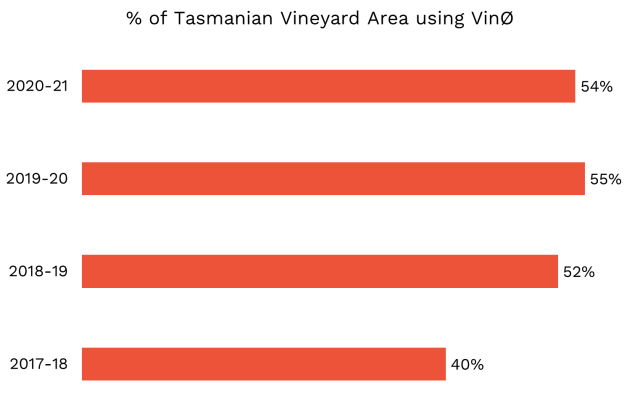
This year saw a strong increase in new wine producer members participating in the VinØ program
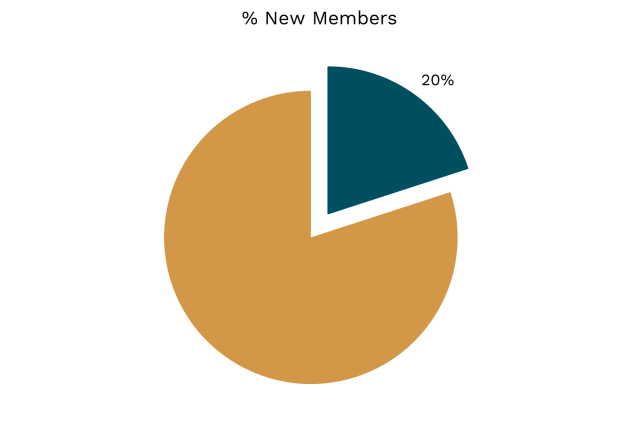
Program Member Results
The overall program results declined in 2020/21, reflecting the higher proportion of new members. New members will be further supported next season, to help them measure and improve their practices across the course of the year.
(members are scored on each of their metrics from 4, great, to 0, needs improvement)
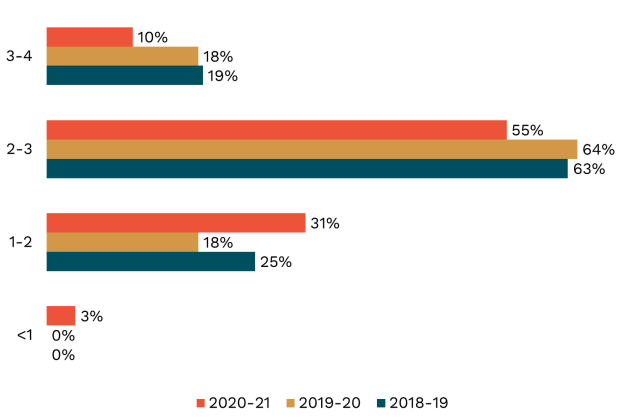
This season, the combined average across members resulted in an overall score of 2.24 out of a perfect mark of 4.
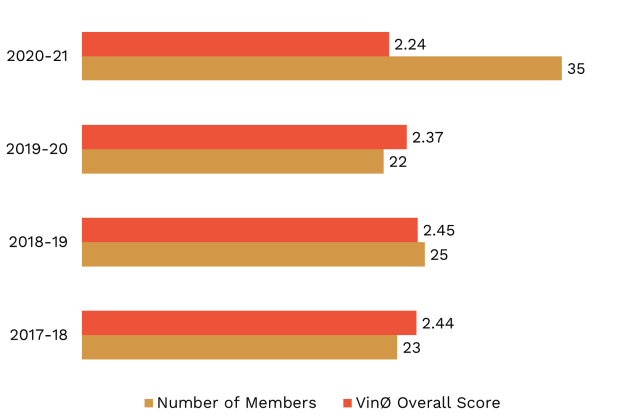
14% of members are certified under formal accredited systems, which are recognised by the VinØ program and Wine Tasmania
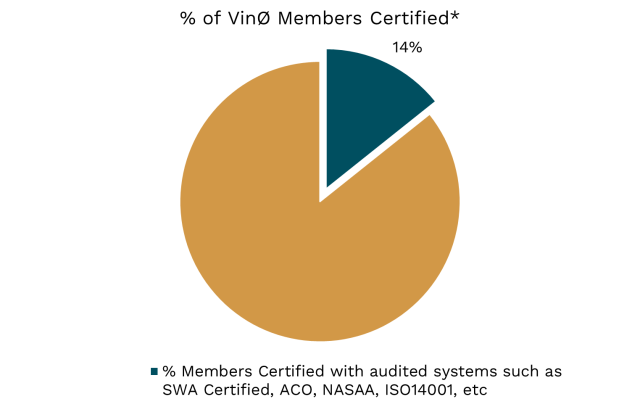

Module Results
The program is divided into nine modules:
1. Soil Health, Nutrition and Fertiliser Management
2. Pest and Disease Management
3. Biodiversity Management
4. Water Management
5. Waste Management
6. Social (Work, Community, and Winery Relations)
7. Biosecurity
8. Winery management
9. Carbon Emissions
Biodiversity Management and Winery Management will be a focus of extension and education activities by Wine Tasmania in 2021/22. Wine Tasmania has begun a dedicated project to investigate Carbon Emissions in the sector.
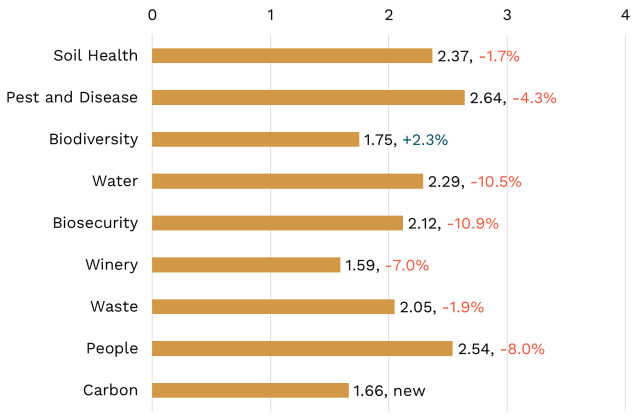

Areas in which Tasmanian wine producers are performing well:
Soil Health - Weed Control Strategy |
Pests - Grapevine Agrochemical Application Records; Planting Material |
Water - Water Source |
Biosecurity - Biosecurity Vineyard Inspections |
People - Remuneration |
Areas showing an opportunity for improvement:
Soil Health - Soil Identification; Soil, Acidity and Alkalinity Salinity Management; Organic Matter |
Biodiversity - Site Audit; Biodiversity Action Plan |
Water - Water Management Strategy; Infiltration and Over Watering; Irrigation Records |
Biosecurity - Training and Induction; Property Entry; Personnel Disinfestation |
Winery - Environmental Action Planning; Emergency Spill Response; Winery Water Management Program; Winery Wastewater Management; Biodiversity Plan - Winery Site; Air, Energy & Fuel |
Waste - Waste Management Planning, Monitoring and Recording; Waste Management Training; Creosote or CCA Timber Posts |
People - Contractor Selection and Hiring; Record Keeping for the Purchasing Winery |
Carbon - Carbon Emissions |
2021 Members List
cloverhillwines.com.au |
Southwood Wines |
Wine Tasmania acknowledges the Aboriginal people as the traditional owners of lutruwita (Tasmania), our island home. We pay our respects to the Tasmanian Aboriginal community, their Elders past, present and emerging, their unique cultural and spiritual relationships to the land, water and community.

